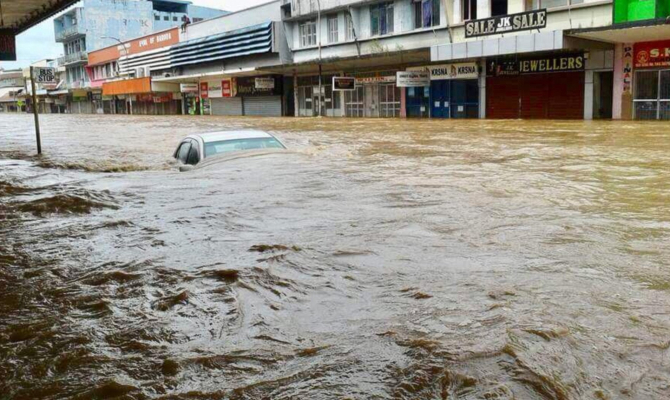World Vision New Zealand is highlighting the urgent need for more innovative grassroots initiatives to help communities in the Pacific mitigate and adapt to climate change.
On World Environment Day (05 June), the international aid organisation says it’s the right time to reflect on what more needs to be done to ensure communities in the Pacific can thrive in the face of the massive challenge of climate change.
World Vision’s International Partnerships Director, TJ Grant, says already this year the Pacific has faced another round of devastating tropical cyclones, with Vanuatu particularly hard-hit.
“Climate change is already devastating communities in the Pacific because it causes food shortages, affects water supplies, and impacts homes and livelihoods. The situation will only continue to worsen if we don’t take action now to mitigate and adapt to these extreme weather patterns,” he said.
“We know our Pacific neighbours are acutely vulnerable to climate change with rising sea levels meaning land and some homes are disappearing before their eyes. It is heart-breaking for communities, especially when they are then hit by destructive natural disasters, such as cyclones.”
Grant said World Vision is already implementing a range of simple and cost-effective grassroots initiatives to help communities combat and survive the impact of climate change.
In the Solomon Islands, World Vision’s Project Officer, George Ganiau, said sea level rise is forcing some villagers to move to higher ground.
“Talking about climate change is a sad story for us. The sea level rise in Solomon Islands is three times faster than the global average. It will likely create a new generation of migrants,” he said.
However, World Vision is working with communities in Solomon Islands to help them adapt to the effects of climate change, including a mangrove planting programme to buffer against high tides and prevent erosion.
Communities have also been trained in “re-greening” techniques, such as Farmer Managed Natural Regeneration (FMNR), a simple and cost-effective land restoration initiative that helps to improve the soil structure and fertility, inhibit erosion, rehabilitate the water table, and encourage biodiversity.
A community leader from the North Malaita region, Finle, said the FMNR programme is welcome given the impact of logging in Solomon Islands.
“I am encouraged to protect trees because we can see many areas in our country are losing their soil fertility because of logging and another unsustainable harvesting of trees,” he said.
In Vanuatu, a country that is ranked one of the most vulnerable to natural disasters, World Vision is working to help communities prepare, respond and recover from disasters.
The National Director of World Vision Vanuatu, Kendra Gates Derousseau said the climate crisis means ensuring food security is a major priority.
She said in the aftermath of Cyclones Judy and Kevin in March this year, a survey found 42 percent of those in the hardest-hit areas did not have enough food to eat each day.
“These violent cyclones destroy crops and vegetable gardens meaning people have no access to fresh fruit and vegetables. Following the cyclones, nearly two-thirds of people in the worst affected areas had not eaten any fresh fruit or vegetables and this obviously goes on to affect health and wellbeing,” she said.
As part of its climate change resilience work, World Vision Vanuatu is growing and distributing seedlings and tools to the islands of Tanna and Efate and training people to build cyclone resilient homes.
“We’re working with communities to help them build cyclone-safe housing and crops so that they are more able to survive and recover quickly from any future cyclone or natural disaster.
“We’re focused on creating sustainable housing and livelihoods, but also on developing a stronger sense of wellbeing in our communities because these natural disasters create psychological trauma as well as well as material disadvantage,” she said.
Grant said World Vision New Zealand is focused on ramping up its programmes to mitigate and adapt to climate change in the Pacific, in particular efforts to “re-green” communities and work to create strong and sustainable communities that can thrive in the face of extreme weather events.
SOURCE: WORLD VISION NZ/PACNEWS














